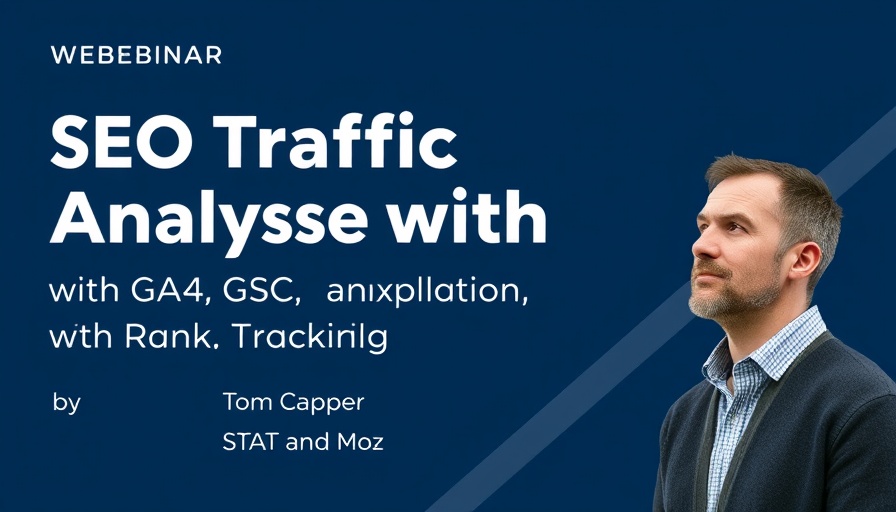
Understanding AIO’s Impact on Your Website Traffic
As digital marketers, we often find ourselves grappling with the complexities of Search Engine Optimization (SEO) and how emerging technologies can alter traffic patterns. The rise of AI Overviews (AIOs) is just one example of how changes in search algorithms can affect our traditional traffic sources. As shown in recent discussions, these AI-driven features now represent a significant portion of search query results, making it crucial to assess their impact on our SEO strategies.
What Are AI Overviews and How Do They Work?
AI Overviews, which summarize content and provide direct answers to user queries, are increasingly visible on Google SERPs. These summaries can appear on as many as 40% of search queries, leading to concerns about their influence on organic click-through rates (CTR). For many businesses and website owners, understanding whether these AI features are cannibalizing their traffic or merely altering the traffic dynamic is key to developing an effective strategy.
Essential Tools and Techniques to Measure AIO Effects
To effectively identify the impact of AIOs on your web traffic, leveraging tools like Google Analytics 4 (GA4), Google Search Console (GSC), and rank tracking software is essential. In the upcoming on-demand webinar, expert Tom Capper discusses actionable strategies for utilizing these tools to distinguish between traditional organic traffic and traffic influenced by AIOs, giving clarity to your data analysis.
Assessing Damage and Adjusting SEO Strategy
With the advanced capabilities of AI, businesses face the challenge of evaluating the potential damage to their existing SEO strategies. By analyzing the specific keywords impacted by AIOs, companies can reframe their SEO efforts, ensuring they remain competitive. This may include optimizing existing content or modifying keyword targeting strategies to mitigate any perceived traffic loss.
Future-Proofing Your SEO Strategy Against AI Overviews
As we look to the future, the integration of AI into search engines is likely to continue evolving. Businesses must adapt by developing an SEO strategy that embraces this change rather than resisting it. This could mean improving the quality of content to enhance relevance and value, or finding innovative ways to leverage AI to serve user needs more effectively.
The Emotional Landscape of Digital Marketing
Understanding the implications of these AI changes is not just a technical challenge; it also has emotional ramifications for marketers who strive to bring value to their audience. The shift to AI can make it feel as though hard-earned traffic is slipping away, leading to frustration and uncertainty. Yet, viewing these changes as an opportunity to innovate can cultivate a more positive mindset among marketers.
Join the Conversation
To explore these insights further, the on-demand webinar offers an in-depth look at AIO impacts, featuring practical frameworks and case studies. Marketers can uncover crucial information on how to respond effectively to changes in SERP dynamics. Engaging in discussions around these topics helps ensure that professionals are equipped to navigate the future of SEO with confidence.
 Add Row
Add Row  Add
Add 




Write A Comment